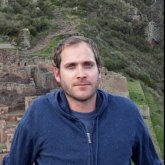PhD Candidate Biodiversity Monitoring for Climate Change Impacts Using Remote Sensing
The University of Twente wants to be an organisation that optimally deploys diversity, talents, and capabilities in the labour market for now and in the future. In the framework of our diversity and inclusiveness policy, we strongly stimulate people with a (work) disability to apply for this position.
The University of Twente is committed to providing a working environment where everyone is valued, respected, and supported to progress. Our priority is to ensure that no one is disadvantaged based on their ethnicity, gender, culture, disability, LGBTQ+ identities, family and caring responsibilities, age, or religion. We encourage everyone who shares these values to apply.
Are you an emerging scientist driven by scientific curiosity to discover and learn? Are you interested in unravelling the intricate nexus between climate change stressors and biodiversity? Are you passionate about processing and analysing multi-sourced Earth Observation data for vulnerable ecosystems in Europe?
Then, join our PhD program to use Earth Observation and spatial science in pioneering biodiversity conservation strategies for climate change adaptation.
Monitoring ecosystem function and structure is essential for understanding biodiversity changes and assessing the impact of climate change on ecological processes. Yet, there are numerous gaps in our understanding of how climate change impacts biodiversity, particularly through ecosystem functioning and structure changes. Under a flagship Horizon EU-China collaboration project, BioClima, you will apply the state-of-the-art Earth Observation technology and conduct novel research to investigate the impact of climate extremes on ecosystems' health and ecosystem functioning and structure.
You will use remote sensing enabled Essential Biodiversity and Climate variables associated with ecosystem functioning and structure and their response to extreme climate events and anthropogenic activities like land use change to examine how climate change contributes to changes in vulnerable ecosystems and the state of biodiversity.
Information and application
For more information, you may contact Dr Elnaz Neinavaz (e.neinavaz@utwente.nl). You are also invited to visit our homepage.
For questions about working and living in the Netherlands, please consult the official website of the Netherlands Government or the website of the Expat Center East Netherlands.
Please submit your application before January 15, 2025, including:
* A motivation letter (maximum two pages of A4) emphasizing your specific interest, qualifications and motivation to apply, including a short description of your MSc thesis (max 250 words)
* Curriculum Vitae (including publications list, previous work experiences, a list of all courses attended and grades obtained and the names and contact information of at least two references)
* A copy of your MSc diploma and transcript. If you are in the final stage (at the latest, you will graduate in February 2025), a letter from your MSc supervisor stating that the MSC is near completion is also sufficient.
Interviews will be held in the last week of January 2025. The successful candidate will most likely start in March 2025 or April at the Latest.
About the department
Natural resources are crucial to maintaining the well-being of societies. Sustainable management of these natural resources balances the needs of people and the environment. It avoids the depletion, degradation, and destruction of ecosystems, prevents biodiversity loss and soil erosion, and mitigates the impacts of climate change.
Our research, education, and partnerships empower society to effectively use insights from geo-information and Earth observation technologies for sustainable management of the environment. The outcome is an increased understanding of the processes that affect the availability, stability, quality, and sustainability of natural resources, enabling their preservation, sustainable use, development, or restoration.
Our academic staff, PhD candidates, and MSc students focus on developing both the means and the measurements that are essential to monitoring trends, tracking changes, and enabling action to sustain biologically diverse environments and productive agricultural systems.
About the organisation
The Faculty of Geo-Information Science and Earth Observation (ITC) provides international postgraduate education, research and project services in the field of geo-information science and earth observation. Our mission is capacity development, where we apply, share and facilitate the effective use of geo-information and earth observation knowledge and tools for tackling global wicked problems. Our purpose is to enable our many partners around the world to track and trace the impact – and the shifting causes and frontiers – of today’s global challenges. Our vision is of a world in which researchers, educators, and students collaborate across disciplinary and geographic divides with governmental and non-governmental organisations, institutes, businesses, and local populations to surmount today’s complex global challenges and to contribute to sustainable, fair, and digital societies.





